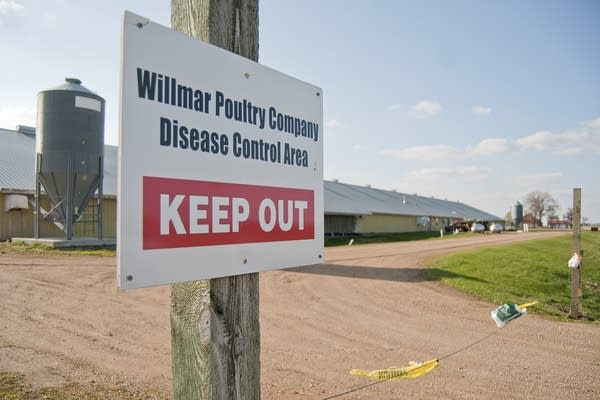U study: Farming may have aided Minnesota bird flu outbreak

Minnesota's avian influenza outbreak last year devastated more than 100 Minnesota turkey farms in 15 counties last spring, creating economic damage estimated at more than $647 million. The Willmar Poultry Company was among those affected by the outbreak.
Jackson Forderer | For MPR News 2015
Go Deeper.
Create an account or log in to save stories.
Like this?
Thanks for liking this story! We have added it to a list of your favorite stories.


